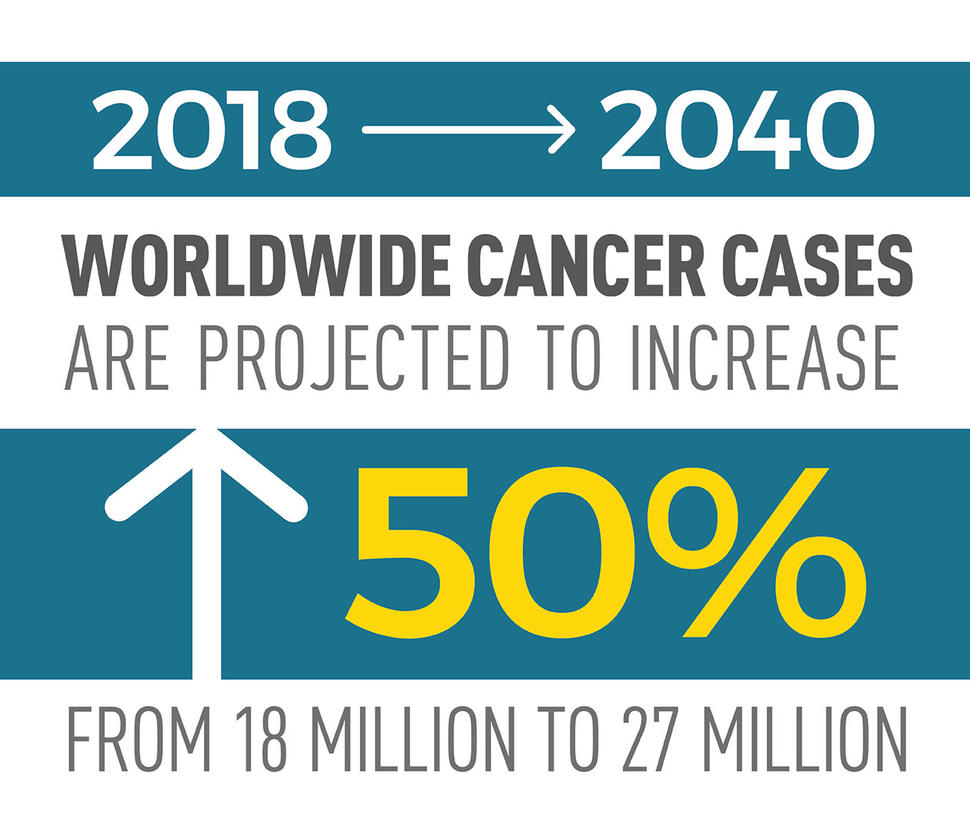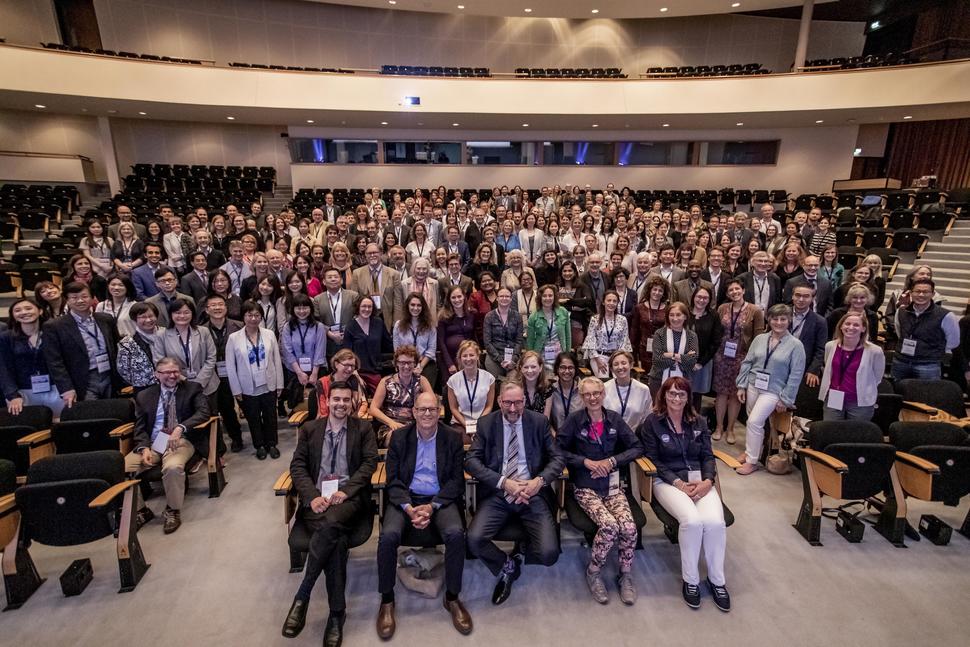
International Cancer Screening Network: Facilitating Global Partnerships to Enhance the Science of Cancer Screening
, by Doug Perin, Stephen Taplin, Amanda Vogel
This World Cancer Research Day (WCRD) the U.S. National Cancer Institute, Center for Global Health, recognizes 30 years of collaboration with the International Cancer Screening Network (ICSN). During that period, NCI has played a leadership role in establishing and coordinating the network while several partner countries have hosted biennial meetings. ICSN has also grown in size and importance as a resource for screening research.
On June 3-5, 2019, our colleagues at Erasmus University Medical Center hosted the largest ICSN Biennial Meeting to date, with 311 attendees from 37 countries, in Rotterdam, Netherlands. Forty-six participants were from the U.S., including nine from NCI’s Center for Global Health, Division of Cancer Control and Population Sciences (DCCPS) and Division of Cancer Epidemiology and Genetics (DCEG), which demonstrates the relevance of the international context to our programs and the lessons in cancer screening we can learn from other countries to apply at home. Dr. Paul Doria-Rose, Chief of the DCCPS Healthcare Assessment Research Branch, represented NCI’s Population-based Research to Optimize the Screening Process. In addition, several other representatives of U.S. and international screening programs were in attendance.
To acknowledge the important accomplishments of this voluntary group of researchers and evaluators in the field of cancer screening, we prepared two publications assessing the value of the network and its potential for knowledge sharing globally. The analyses reviewed responses from 265 participants from all over the world who were involved in the ICSN.
The first paper, “Understanding the Value of International Research Networks: An Evaluation of the International Cancer Screening Network of the U.S. National Cancer Institute” shares findings on the short- and long-term outcomes and impacts of the ICSN for participants in the network, the field of cancer screening research, and policies and practices in the implementation of cancer screening. It highlights the value of international networking and collaboration to advance the science as well as translational applications to policies and practices internationally. In addition, it includes a bibliometric analysis of 20 cross-national collaborations led by ICSN.
The second paper, “Assessing Knowledge Sharing in Cancer Screening Among High-, Middle-, and Low-Income Countries: Insights from the International Cancer Screening Network” explores how cancer screening professionals working in diverse settings interact and collaborate within the ICSN. The paper shares important findings on similarities and differences in how ICSN participants from different country income levels view their participation in the ICSN and the value of the network. Findings reveal a focus in cancer screening research among participants and highlight the importance of including both high- and low-income countries in international research networks. Both papers will be published in a forthcoming issue of the Journal of Global Oncology.
The growth and strength of the network, the diversity and wealth of expertise, has enabled ICSN to focus on its structure to continue to accomplish its mission of reducing the burden of cancer by promoting collaborative research and evaluation in cancer screening.
ICSN’s goals are:
The growth and strength of the network, the diversity and wealth of expertise, has enabled ICSN to focus on its structure to continue to accomplish its mission of reducing the burden of cancer by promoting collaborative research and evaluation in cancer screening.
ICSN’s goals are:
- to provide global leadership in cancer screening research;
- to connect researchers, evaluators, implementers and screening program staff so they can exchange data, evidence, ideas and experiences that advance the field of cancer screening;
- to assist in the design of studies that evaluate the process and effectiveness of cancer screening programs;
- to evaluate and promote innovation in cancer screening; and,
- to enhance the screening process for treatment of screen-detected lesions, among other topics.
To achieve this, ICSN has started a process to update its membership and renew its Steering Committee, and to formalize its structure, establishing itself as an independent organization. ICSN is open to all people involved in the field of cancer screening and welcomes members who conduct cancer screening research, develop infrastructure for cancer screening, and establish programs whose goal is to deliver the highest quality health care while producing the maximum benefit to the population and minimizing its harms. As we look forward to WCRD on September 24th, we are reminded of the vital role cancer screening plays in reducing the global cancer burden. ICSN’s researchers and evaluators serve as leaders within the international community, and share a commitment to advancing the field of cancer screening research worldwide.
For more details and information about how to become a member, please contact Doug Perin, ICSN Executive Director.
























.png)












No hay comentarios:
Publicar un comentario